His Pre-Eminence Professor Bolaji Idowu, not merely a scholar but also a moral leader who had great impact on his own society was the third native-born leader of the Methodist Church Nigeria, serving from 1972 to 1984. He is also well known for his ethnographic and theological studies of the Yoruba people. Born on September 28, 1913 in Ikorodu, Nigeria, attended Baptist Boys’ High School, Abeokuta; Wesley College, Ibadan; Wesley House, Cambridge; and Wesley College, Headingly, Leeds. He worked and taught as the first Nigerian Head of Religious Department, University of Ibadan for twenty. He rose to become Professor and Head of Department in 1963. He died 30 years after. Using the words of Professor Oyin Abogunrin, Patriarch Idowu was ‘an African academic giant of his time, a professor of professors, a mentor of mentor and a builder of one of the leading and largest Department of Religious Studies in Africa.’ As the Head of Department, Patriarch Idowu ‘began the Africanisation of the teaching staff by recruiting Prof J O Awolalu and later Prof J.A Omoyajowo … He secured university scholarships for His Eminence Dr Sunday Mbang, Most Rev Rogers Uwadi, Dr Falusi, Prof S O Abogunrin, Dr A O Olukunle and many others, to study abroad.
Professor Bolaji Idowu’s work, Olodumare: God in Yoruba Belief which continue to be of great global importance was ‘written at a time when African traditional religions were denied significant voice in the comparative study of religions, and when Africans were claimed not to have the knowledge of God before the European’s arrival.’ Professor Jacob Olupona explained that Idowu’s ‘book draws heavily on oral tradition – proverbs, myths, oral poetry and the Ifa divination corpus – to establish that Olodumare, the Yoruba supreme God, has always been alive and well in the Yoruba consciousness and is an essential principle around at the centre of the life and beliefs of the Yoruba people. The book, Olodumare, God in Yoruba Belief, a revised version of Patriarch Professor Bolaji Idowu’s doctoral thesis on comparative religion which was defended at the University of London in 1955 first appear in print in 1962. The book, Olodumare: God in Yoruba Belief according to Njideka Ebisi ‘has come to be regarded as the bible of African religion, as a foundation reference work in the field of African studies, and indeed as a classic.’ Indeed, Patriarch Idowu died empty but he lives on. Providentially, Patriarch Idowu ‘gave permission for the reprint of this book (Olodumare: God in Yoruba Belief) a few days before his own transition to the land of our ancestors.’ Based on the scarcity of the book, on October 24, 1993, Patriarch Idowu transferred his copyright of the book Olodumare: God in Yoruba Belief to Njedeka Ebisi. Patriarch Idowu went home on November 27, 1993. Before his transition, the Federal Government of Nigeria commissioned his new manuscript entitled God in Nigerian Belief ‘to document religious similarities across ethno-linguistic boundaries.’
Patriarch Idowu’s contribution to the study of Religions since he joined the academic staff of the Department of Religious Studies, University of Ibadan in 1958 promoted ‘Theology which bears the stamp of Africa; the development of the Church in Africa and Interaction of Religions in Nigeria.’ Patriarch Idowu according to Professor Abogunrin ‘was the one who formulated the syllabus of the various courses in African Traditional Religion, Interaction of Religion in Nigeria, The religion of the Yoruba and Christian Theology in Africa.
“ORITA,” the name for the Ibadan International Journal of Religious Study before it was appropriated, adopted and published in 1967 by the Department was suggested by Patriarch Idowu. According to Professor Omosade Awolalu, it was Patriarch Idowu who suggested the “ORITA” (Road junction or where roads meet) to describe the religious practices in our society. Patriarch Idowu introduced the Koinonia group, a fellowship among ministers of all denominations studying in the Department for weekly Bible Study ‘at the choir gallery in Chapel of the Resurrection.’ It is on record that Patriarch Idowu in 1976 invested one thousand pounds (£1,000.00) of his gratuity with the section dealing with investment in the Bursary in aid of the Department of Religious Studies. According to Professor Abogunrin, ‘the Department is yet to make use of the interest that might have accrued since 1976.’
The accusation that Patriarch Idowu Christianised African religion I think is better described as Patriarch Idowu’s application of his personal Christian conversion and academic exposure in promoting indigenous Christianity. Patriarch Idowu’s book is not about Christianising African religion. Religion and spirituality in Africa generally using the words of Professor Olupona, ‘informs everything in traditional African society, including political art, marriage, health, diet, dress, economics, and death … African spirituality simply acknowledges that beliefs and practices touch on and inform every facet of human life, and therefore African religion cannot be separated from the everyday or mundane.”
In the beginning, Africa was not without the knowledge of God hence, as part of the early church’s initial congregational expansion, there were strong leadership structures in Alexandria, Carthage, Hippo Regius and Ethopia. Van der Merwe, Dirk of the University of South Africa explained that, ‘Christianity in Africa was certainly not founded with European involvement like organised missions to Africa or colonialism. The roots of the Christianising of Africa reach back to the missions of the Apostles. The Christian Church blossomed in North Africa for six centuries before the arrival of Islam in this region.’ In essence, there was political and cultural identity in Africa for over two millennia before ‘the Christian church with a westernised character … spread all over Africa.’ Patriarch Idowu’s book, Olodumare: God in Yoruba Belief as a Bible of African Religion is to show ‘a strong African consciousness and critical approach to Africanise Christianity, to decolonise it and to de-Westernise it.’ Patriarch Idowu’s book is a protest against Christianising Africa but rather to Africanising Christianity hence, his concept of ‘Towards an Indigenous Church.’ According to Professor Oluponna, Patriarch Idowu, ‘single-handedly laid the foundation for what we may call the “Ibadan School,” whose primary research emphasis on beliefs and theistic conceptions has gained wide influence on the study of Yoruba religion down to the present time.’
Based on his vision and his ‘influential example of independence from colonialism’ which is beyond ‘a matter of changing the name of a country or the design of its flag,’ the book Olodumare: God in Yoruba Belief is about regaining Yoruba political and cultural identity. In the context of the euphoria of African nationalism, Olodumare: God in Yoruba Belief was to deconstruct the racist connotation and claim that ‘Africa had no knowledge of God.’Using the words of Njideka Ebisi, Patriarch Idowu’s ‘own type of nationalism was based in the independence of the mind.’ Patriarch Idowu, a ‘finest nationalist tradition, promoted the idea that God (Olodumare) is no respecter of persons: but in every nation he that feareth him, and worketh righteousness, is accepted with him” (Acts 10:34-35). Yoruba theology is centred on the Supreme Being – Olodumare. One may challenge the vast and very ambitious comparative mindset of Patriarch Idowu but as a scholar, ‘he easily brought African religion into dialogue with other ancient traditions.’ Professor Segun Ilesanmi rightly described Patriarch Idowu’s assertion as ‘his construal of religion in essentialist terms, which reflects a perspective to regard religion “as a phenomenon sui generis” and not “as mere reflection of social conditions.”
Olodumare: God in Yoruba Belief as a bible of African religion is about ‘Olorun,’with a specific Christian meaning, ‘the praise-name of Olodumare.’ In essence, the name, nature, status, and attributes of ‘Olorun-Olodumare’ points to ‘Primordial Being, Creator, Protector, Healer, Giver of crops and prosperity.’
Olodumare: God in Yoruba Belief summons us to see the ministers of Olodumare beyond certain being whom we designated as divinities. According to Patriarch Idowu, ‘the Yoruba divinities are not “things made” by hand, nor are they “toy.” Though the Yoruba bow down before the emblems of their divinities, which may be “thing made,” things of wood and stone, yet they do not bow down to wood and stone.’ Here, one can see Patriarch Idowu’s usage of symbolic representations, ‘a way of making the spiritual perceptible through the material. But it is a misinterpretation not to see beyond the symbol to its meaning.’
Olodumare: God in Yoruba Belief reminds us that ‘worship (public or private) in the religion of Yoruba is essentially ritualistic and liturgical,’ following ‘set, fixed and traditional patterns.’ On the place of music in worship, either ‘just singing, singing accompanied by clapping, or singing accompanied by instruments, according to Patriarch Idowu, ‘the kind of worship decides how full the instrumental accompaniment should be.’
Olodumare: God in Yoruba Belief invites us to remember man’s final destiny, ‘After-Life’ because, the world is a market place, heaven is home, ‘aye loja, orun nile.’ After-Life is where we face the final judgement before Olorun-Olodumare bearing in mind that ‘All that we do on earth. We shall account for kneeling in heaven,’ ‘Gbogbo ohun ti a ba se l’aiye, L’ a o kunle ro l’orun.’
Baba Bolaji Idowu lives on. Please remember his wife, Mama Yewande Idowu, children, grand and great grand children in prayer.

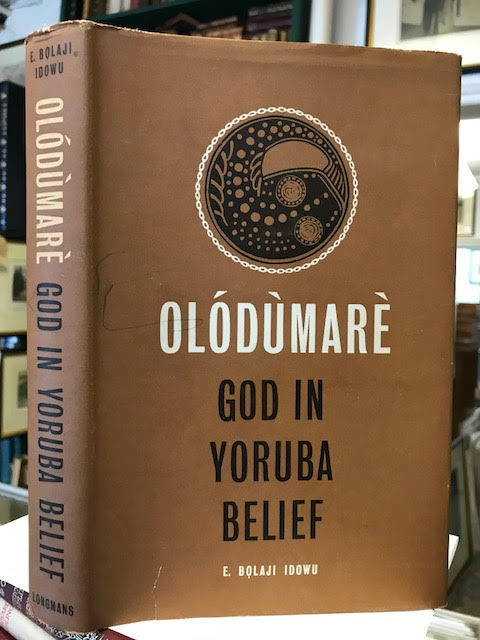
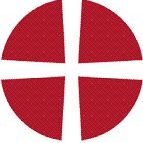
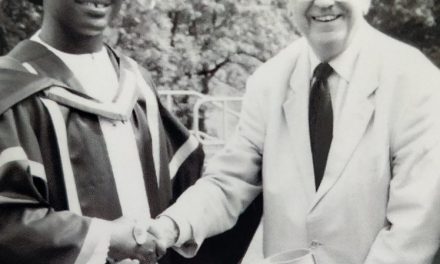
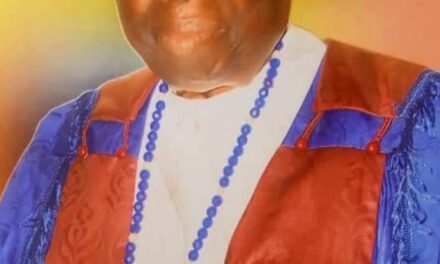
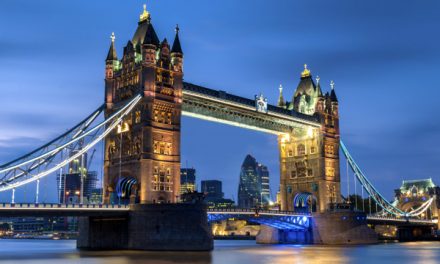





Great job! Your impact will never be forgotten